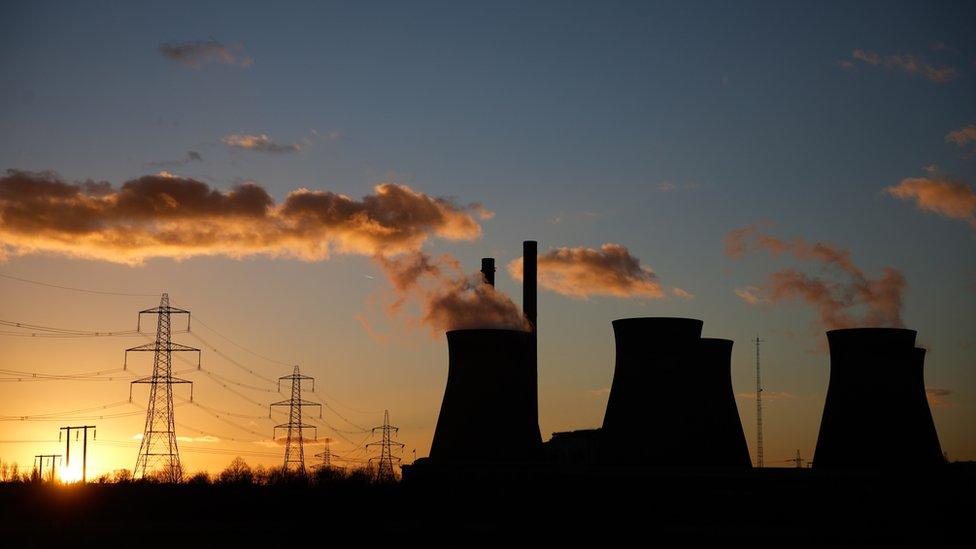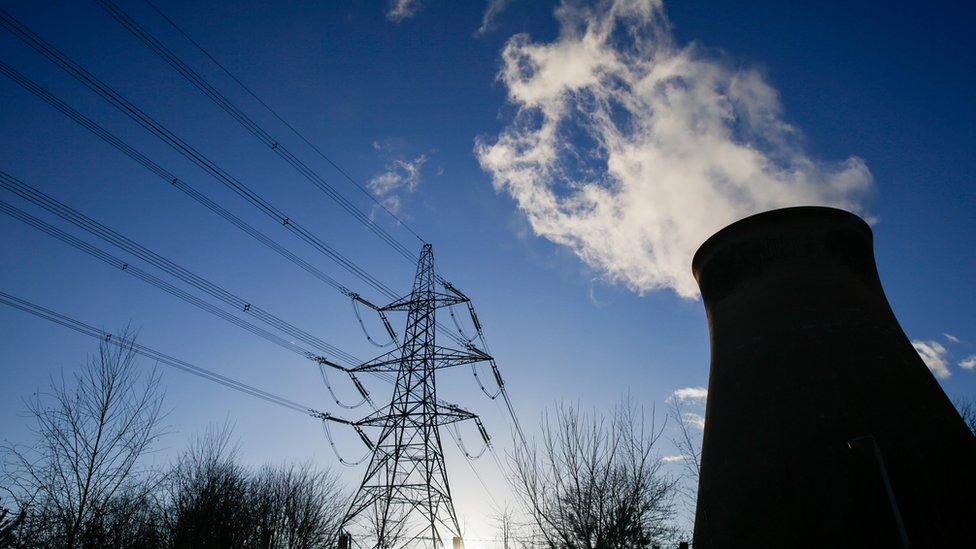SSE freezes standard tariff energy prices until April 2017
- Published

SSE, one of the big six energy firms, has announced a price freeze for standard rate customers until April.
The company, which has eight million customers, is the first major supplier to announce a price cap this winter.
The news follows an announcement earlier this week by the Business Secretary, Greg Clark, that he would be investigating profits in the industry.
That followed newspaper claims that energy firms might be enjoying larger profit margins than they have admitted.
Across the industry, two-thirds of energy customers are on standard variable tariffs, even though fixed rates are cheaper.
SSE's own one-year fixed-rate tariff promises to be up to £85 a year cheaper than its standard tariff.

Analysis: John Moylan, BBC industry correspondent
Pressure from tabloids and consumer groups has been mounting on the big six suppliers in recent weeks. One insider described the atmosphere as akin to that in the wake of the Labour Party's price freeze announcement in 2013.
At issue, the millions of "loyal" customers paying over the odds on expensive standard variable tariffs (SVTs).
The Business and Energy Secretary, Greg Clark, has said the £1bn of customer detriment identified by the Competition and Markets Authority's energy probe "has to be addressed".
There's been speculation that the government could act in next week's Autumn Statement.
So the firms are taking action. Some will write to their SVT customers to try to move them onto cheaper deals. Now SSE is capping prices.
But for a government, which has promised an economy that works for everyone, the moves are unlikely to go far enough.


Experts have speculated that energy prices might rise this winter, as a result of increasing wholesale prices for both gas and electricity.
"The SSE freeze is welcome over the winter months, because we've seen wholesale prices rise very steeply over the recent weeks and months," said Stephen Murray, energy expert at Moneysupermarket.com.
But he said SSE was under particular pressure, because it has so many customers on standard tariffs.
"There are still too many customers on standard tariffs, which are £200 more expensive than the cheapest tariffs on the market," said Mr Murray.
Claire Osborne, an energy expert with Uswitch, said some firms were coming under intense scrutiny from the government, in an attempt to bring prices down.
She said the fact that the freeze would last until April 2017 meant it was likely that many prices could rise shortly after that.